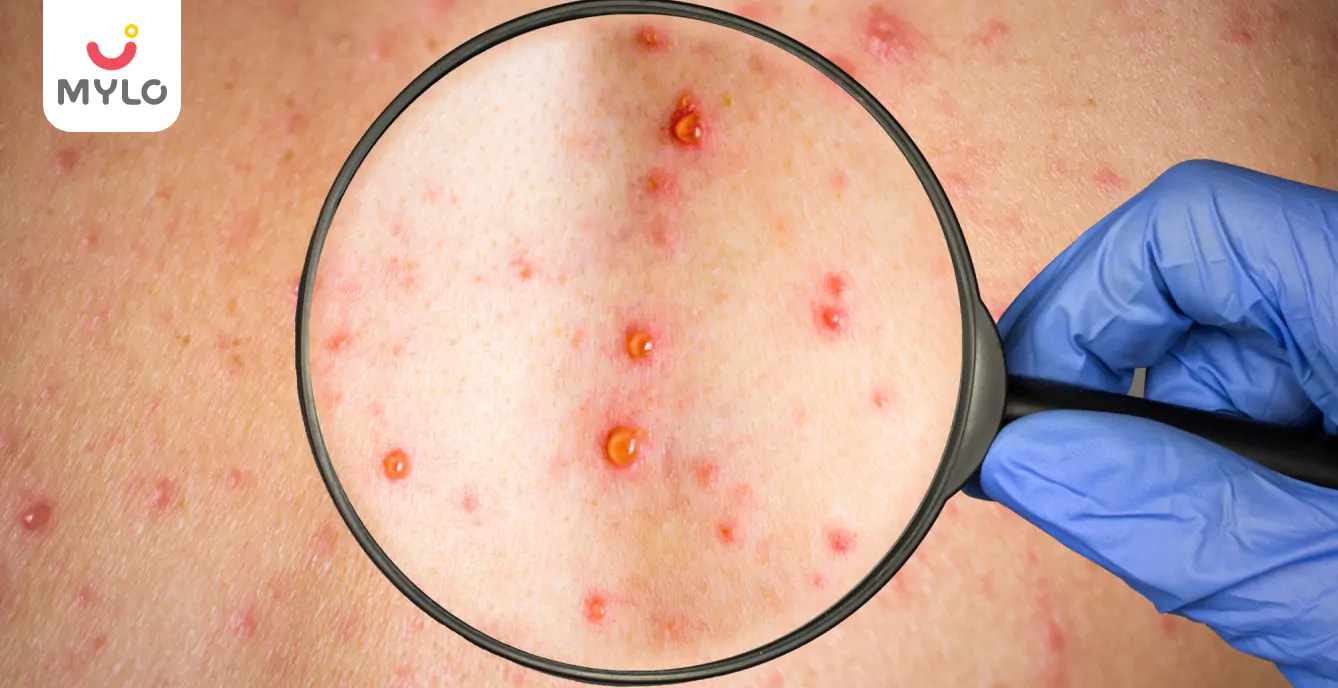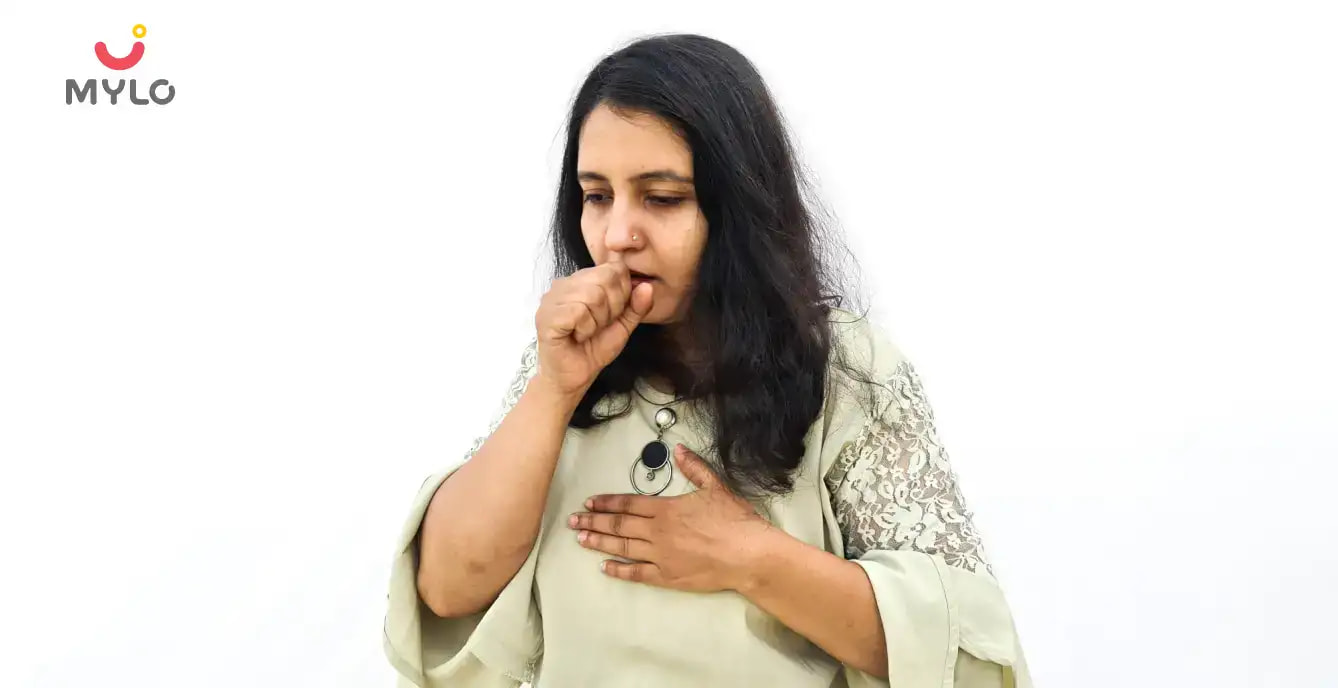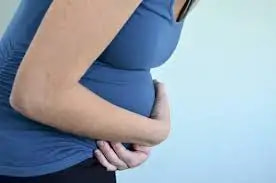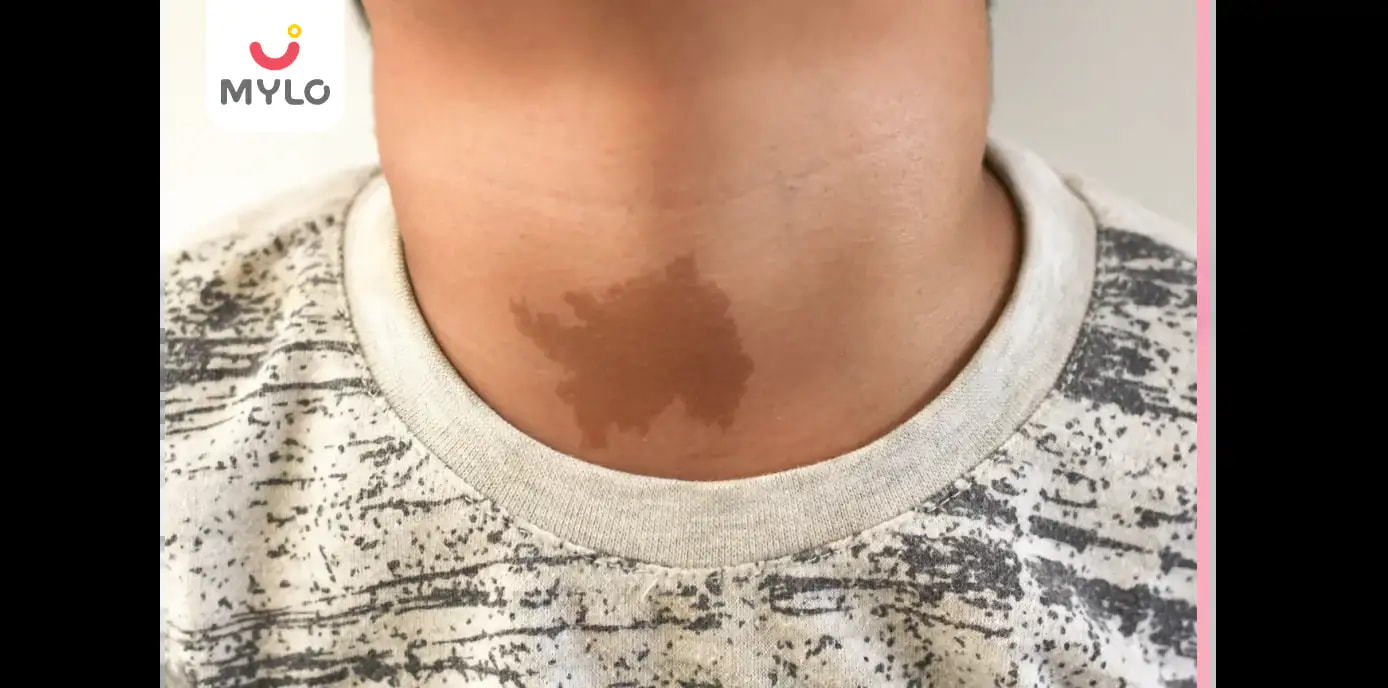Home

Symptoms & Illnesses

Kawasaki Disease: Meaning, Symptoms & Treatment
In this Article
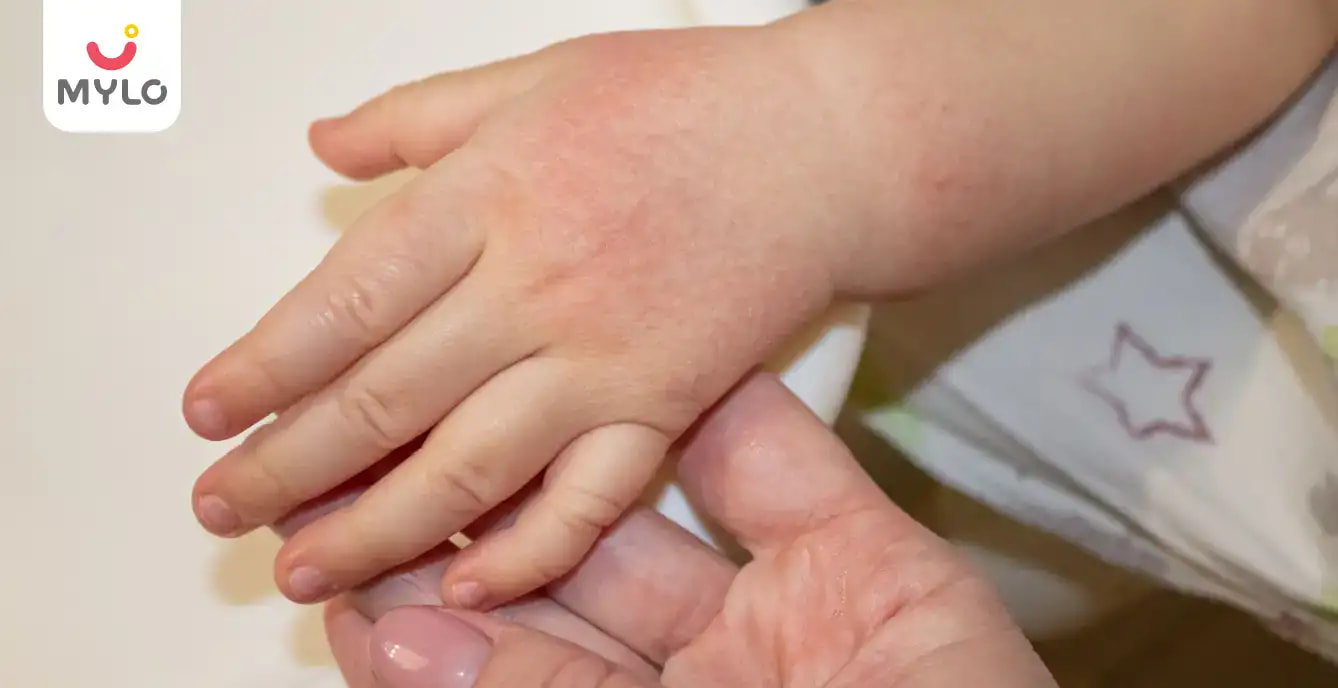
Symptoms & Illnesses
Kawasaki Disease: Meaning, Symptoms & Treatment
Updated on 3 November 2023
Children have weak immune systems, and they often suffer from minor diseases. However, some genetic diseases are also common among some children. One such ailment is Kawasaki disease. This disease causes inflammation in children's arteries, making them suffer from fever and Kawasaki rash. One does not need to be afraid of this disease as it is a temporary condition that usually subsides within a few days under medical supervision.
What is Kawasaki Disease?
Parents need to know what is Kawasaki disease to save children from it and ensure their speedy recovery if diagnosed with it. In medical terminology, Kawasaki disease or Kawasaki syndrome is called mucocutaneous lymph node syndrome. It causes inflammation in the walls of small and medium-sized blood vessels in children.
Furthermore, the disease can lead to an inflammation in the coronary artery, the arteries responsible for carrying oxygenated blood to the heart. It can also lead to swelling in the glands and mucous membranes.
Kawasaki disease symptoms
Some of the common Kawasaki disease symptoms are as follows -
-
Fever greater than 102.2F or 39 C
-
Kawasaki disease rash on the skin of the children
-
Swelling of the lymph node
-
Red eyes or conjunctival injection
-
Cracked and dried red lips and extremely red tongue or Kawasaki disease tongue
-
Swelling in hands and feet, which eventually turns red in color.
-
Abdominal pain
-
Diarrhea
-
Drowsiness and vomiting
-
Joint pain
-
Jaundice
-
Skin peeling on the feet and hands
Causes of Kawasaki disease
The accurate causes of Kawasaki disease are not yet understood. However, some factors can be regarded as the cause of this disease. Kawasaki disease causes are as follows -
Viral or bacterial Infection
Some of the Kawasaki symptoms, such as rash Kawasaki disease, indicate that it is similar to an infection caused by viruses or bacteria. However, it is not yet ascertained whether viruses or bacteria cause it.
Autoimmune disorder
Autoimmune disorder can also cause Kawasaki disease. In this condition, the body’s immune system becomes a pathogen and attacks the healthy tissues causing this disease.
Genetics
Parents with a history of Kawasaki disease are more likely to pass it on to their children through their genes.
Diagnosis of Kawasaki disease
The diagnosis of Kawasaki disease depends on the Kawasaki disease symptoms that appear in a child. Some common tests are done to test the health of the blood and heart include the following -
-
Urine test - To check whether some other disease has caused the symptoms.
-
Platelet count test - Platelets are often very high in Kawasaki disease.
-
Erythrocyte sedimentation rate test - This test checks any inflammatory condition in the body.
-
Sodium test - In Kawasaki disease, children often have low sodium levels in their bodies.
-
CRP test - This test is also done to check for inflammation in the body.
-
Albumin test - A low albumin level in blood confirms Kawasaki disease in children.
Tests that are done to check the health of the heart are as follows -
-
ECG test - This test is done to check the heart rhythms and see if everything is perfect. Electrodes are attached to the skin, and the heart's impulse is observed to check the heart's health.
-
Echocardiogram - It is an ultrasound test used to determine the heart's pumping action using sound waves.
Treatment of Kawasaki disease
Kawasaki disease is treated using some oral medications such as -
-
Aspirin
-
Intravenous immunoglobulin
-
Corticosteroids and tumor necrosis factor inhibitors
-
Anticoagulant medications
However, if these medications do not help, a surgical procedure called Coronary artery angioplasty is done to open up the blocked artery. Furthermore, a stent is also placed to reduce the risk of the blockade in the future.
Complications of Kawasaki disease
If not properly treated, Kawasaki disease can lead to serious complications such as an aneurysm. Moreover, it can also increase the risk of heart attack or internal bleeding in children. Some other major complications include -
-
Myocarditis
-
Pericarditis
-
Malfunctioning of cardiac muscle and heart valves
-
Heart failure
Who's affected by Kawasaki disease
The Kawasaki syndrome or Kawasaki disease primarily affects small children below the age of 5. Boys are more likely to be diagnosed with this disease. Children of people of Asian or pacific descent have a very high chance of getting infected with Kawasaki disease.
When to see a GP
A parent needs to see a general practitioner or GP as soon as any of the Kawasaki disease symptoms appear in their children. If fever is persistent in a child and parents can observe some red rashes developing on their children, they should not waste any time. Kawasaki disease must be treated as early as possible to avoid serious complications in children. Children with proper treatment recover fully from this disease in six to eight weeks.
So this was everything a parent needs to know about Kawasaki disease and the symptoms of this disease. And one should not delay getting the right treatment for their kids once they see any of the symptoms mentioned above in their child.
Reference:
1. NHS.26th Octorber 2021. Complications-Kawasaki disease.NHS.UK



Written by
Sanju Rathi
A Postgraduate in English Literature and a professional diploma holder in Interior Design and Display, Sanju started her career as English TGT. Always interested in writing, shetook to freelance writing to pursue her passion side by side. As a content specialist, She is actively producing and providing content in every possible niche.
Read MoreGet baby's diet chart, and growth tips

Related Articles
Related Questions
Influenza and boostrix injection kisiko laga hai kya 8 month pregnancy me and q lagta hai ye plz reply me

Hai.... My last period was in feb 24. I tested in 40 th day morning 3:30 .. That is faint line .. I conculed mylo thz app also.... And I asked tha dr wait for 3 to 5 days ... Im also waiting ... Then I test today 4:15 test is sooooo faint ... And I feel in ma body no pregnancy symptoms. What can I do .

Baby kicks KB Marta hai Plz tell mi

PCOD kya hota hai

How to detect pcos

Related Topics
RECENTLY PUBLISHED ARTICLES
our most recent articles

Diet & Nutrition
গর্ভাবস্থায় আলুবোখরা: উপকারিতা ও ঝুঁকি | Prunes During Pregnancy: Benefits & Risks in Bengali

Diet & Nutrition
গর্ভাবস্থায় হিং | ঝুঁকি, সুবিধা এবং অন্যান্য চিকিৎসা | Hing During Pregnancy | Risks, Benefits & Other Treatments in Bengali

Women Specific Issues
স্তনের উপর সাদা দাগ: লক্ষণ, কারণ এবং চিকিৎসা | White Spots on Nipple: Causes, Symptoms, and Treatments in Bengali

Diet & Nutrition
গর্ভাবস্থায় পোহা: উপকারিতা, ধরণ এবং রেসিপি | Poha During Pregnancy: Benefits, Types & Recipes in Bengali

Diet & Nutrition
গর্ভাবস্থায় মাছ: উপকারিতা এবং ঝুঁকি | Fish In Pregnancy: Benefits and Risks in Bengali

Diet & Nutrition
গর্ভাবস্থায় রেড ওয়াইন: পার্শ্ব প্রতিক্রিয়া এবং নির্দেশিকা | Red Wine During Pregnancy: Side Effects & Guidelines in Bengali
- ইনার থাই চ্যাফিং: কারণ, উপসর্গ এবং চিকিৎসা | Inner Thigh Chafing: Causes, Symptoms & Treatment in Bengali
- গর্ভাবস্থায় ব্রাউন রাইস: উপকারিতা ও সতর্কতা | Brown Rice During Pregnancy: Benefits & Precautions in Bengali
- Velamentous Cord Insertion - Precautions, Results & Safety
- Unlock the Secret to Flawless Skin: 7 Must-Have Qualities in a Face Serum
- Unlock the Secret to Radiant Skin: How Vitamin C Serum Can Transform Your Complexion
- Gender No Bar: 10 Reasons Why Everyone Needs a Body Lotion
- Unlock the Secret to Radiant Skin How to Choose the Perfect Body Lotion for Your Skin Type
- Top 10 Reasons to Apply a Body Lotion After Every Bath
- Communication in Toddlers: Milestones & Activities
- How to Improve Vocabulary for Toddlers?
- A Comprehensive Guide to Understanding Placenta Accreta
- Vulvovaginitis in Toddlers Causes, Symptoms and Treatment
- A Comprehensive Guide to Understanding Cerebral Palsy in Children
- Bitter Taste in Mouth During Pregnancy: Understanding the Causes and Remedies


AWARDS AND RECOGNITION

Mylo wins Forbes D2C Disruptor award

Mylo wins The Economic Times Promising Brands 2022
AS SEEN IN
















- Mylo Care: Effective and science-backed personal care and wellness solutions for a joyful you.
- Mylo Baby: Science-backed, gentle and effective personal care & hygiene range for your little one.
- Mylo Community: Trusted and empathetic community of 10mn+ parents and experts.
Product Categories
baby carrier | baby soap | baby wipes | stretch marks cream | baby cream | baby shampoo | baby massage oil | baby hair oil | stretch marks oil | baby body wash | baby powder | baby lotion | diaper rash cream | newborn diapers | teether | baby kajal | baby diapers | cloth diapers |



